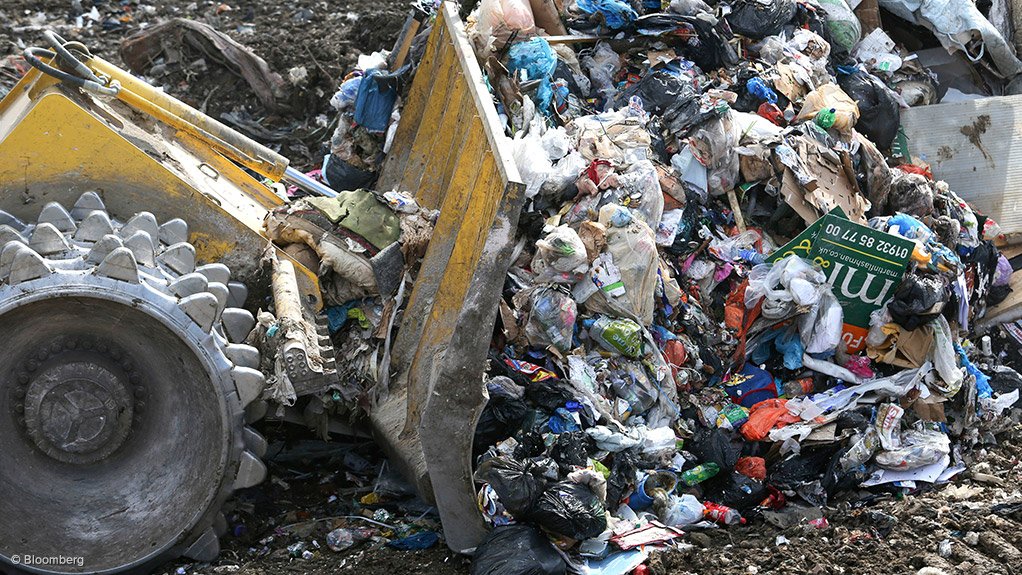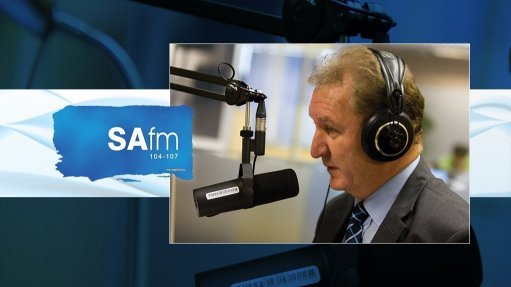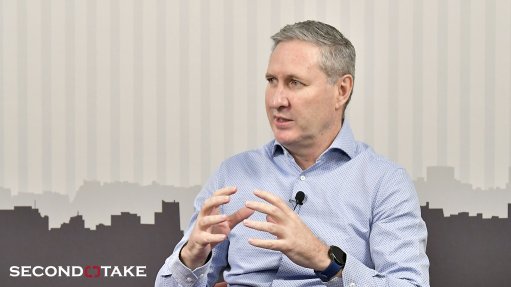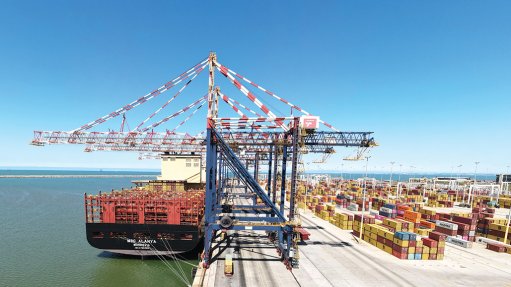Creecy reiterates South Africa’s commitment to reducing food waste, plastic pollution
Forestry, Fisheries and the Environment Minister Barbara Creecy on March 23 said this was a vital year in the implementation of the Extended Producer Responsibility (EPR) scheme for packaging products.
The EPR is a policy approach, originally published in November 2020, under which producers are given significant responsibility – financial and/or physical – for the treatment or disposal of post-consumer products.
Addressing delegates at a closing event of the Food and Packaging Waste Prevention and Reduction Initiative, the Minister reflected on South Africa’s progress made towards achieving the United Nations’ Sustainable Development Goal (SDG) 12.3 – reducing food loss and waste by 50% by 2030.
Creecy mentioned how the Covid-19 pandemic had aggravated already existing food production and consumption challenges in South Africa, but also provided opportunities to rethink practices as consumer buying habits changed and global supply chains had been disrupted.
South Africa generated about 55-million tonnes of general waste in 2018, of which 19-million tonnes comprised organic waste, including food waste.
The Food and Packaging Waste Prevention and Reduction Initiative seeks to address food security from the perspective of avoiding food waste. Food loss and waste is a recognised global issue which is also affecting South Africa.
According to the Department of Science of Innovation and the Council for Scientific and Industrial Research, an estimated 10.3-million tonnes of food and beverages, which is about 34.3% of local food production, is wasted in South Africa every year, amounting to R61.5-billion a year.
“While our country has these shocking food waste statistics, we also have a problem of acute food insecurity. The Integrated Food Security Phase Classification is a common global scale for classifying the severity and magnitude of food insecurity and malnutrition.
“Globally, indications are that around 800-million people are undernourished. It is concerning that, in 2020, 9.34-million people in South Africa suffered from acute food insecurity and urgent action is required to reduce food gaps and protect livelihoods, according to Integrated Food Security Phase Classification,” Creecy stated.
She stressed that this required urgent intervention. South Africa’s deteriorating food security was mainly driven by the Covid-19 pandemic, high food prices, drought and economic decline in recent years.
Statistics South Africa indicates that almost 20% of South African households have inadequate access to food.
During the launch of the South African Food Loss and Waste Voluntary Agreement last year, Creecy mentioned that government was reviewing existing legislation and developing new policy instruments for better management of waste and to encourage and inspire innovation in the waste management and food production sectors.
“In March, we also took a decision with other member States at the fifth session of the United Nations Environment Assembly (held late in February) to curb plastic pollution.
“However, as a department, we realise that we need to ensure that the transition for plastic packaging is phased, and that the circumstances of the domestic plastic industry are addressed, as there are close linkages with the food industry.
“We commit to working with stakeholders to ensure pollution is addressed and food waste reduced.”
In South Africa, the National Waste Management Strategy (NWMS) 2020, as part of government’s strategic priority to minimise waste to landfill by 45% by 2025, identified food waste and loss as a critical area that required intervention.
Therefore, as a direct response to NWMS 2020, SDG: 12 and government priorities as a whole, a Draft Food Loss and Waste Strategy is under development.
The strategy aims to increase awareness of the impact of food waste. It will align with chemicals and waste economy initiatives, strongly integrate different disciplinary perspectives and best practices, and map out the determinants of food waste generation to deepen the understanding of household practices and help design food waste prevention strategies.
Creecy encouraged all key stakeholders in the food value chain to participate in the development of this strategy for reducing food losses and waste, which will, in turn, inform effective and efficient food waste management solutions and contribute to economic growth.
Meanwhile, food and beverage waste also has a significant impact on the environment, as methane – a greenhouse gas (GHG) – is produced when food spoils.
Creecy said South Africa remained committed to achieving the SDGs, especially around food waste.
Globally, food loss and waste represent 8% of anthropogenic GHG emissions, or 4.4 gigatons of carbon dioxide equivalent annually, offering opportunity for meaningful reductions.
“Given the Constitutional obligation to protect the environment from pollution, the Ministry of Forestry, Fisheries and the Environment is a strategic partner in this initiative,” Creecy noted.
Importantly, in the face of climate change and increasing temperatures and water scarcity, reducing food waste also has a significant role to play in South Africa’s transition to a low-carbon society.
Comments
Press Office
Announcements
What's On
Subscribe to improve your user experience...
Option 1 (equivalent of R125 a month):
Receive a weekly copy of Creamer Media's Engineering News & Mining Weekly magazine
(print copy for those in South Africa and e-magazine for those outside of South Africa)
Receive daily email newsletters
Access to full search results
Access archive of magazine back copies
Access to Projects in Progress
Access to ONE Research Report of your choice in PDF format
Option 2 (equivalent of R375 a month):
All benefits from Option 1
PLUS
Access to Creamer Media's Research Channel Africa for ALL Research Reports, in PDF format, on various industrial and mining sectors
including Electricity; Water; Energy Transition; Hydrogen; Roads, Rail and Ports; Coal; Gold; Platinum; Battery Metals; etc.
Already a subscriber?
Forgotten your password?
Receive weekly copy of Creamer Media's Engineering News & Mining Weekly magazine (print copy for those in South Africa and e-magazine for those outside of South Africa)
➕
Recieve daily email newsletters
➕
Access to full search results
➕
Access archive of magazine back copies
➕
Access to Projects in Progress
➕
Access to ONE Research Report of your choice in PDF format
RESEARCH CHANNEL AFRICA
R4500 (equivalent of R375 a month)
SUBSCRIBEAll benefits from Option 1
➕
Access to Creamer Media's Research Channel Africa for ALL Research Reports on various industrial and mining sectors, in PDF format, including on:
Electricity
➕
Water
➕
Energy Transition
➕
Hydrogen
➕
Roads, Rail and Ports
➕
Coal
➕
Gold
➕
Platinum
➕
Battery Metals
➕
etc.
Receive all benefits from Option 1 or Option 2 delivered to numerous people at your company
➕
Multiple User names and Passwords for simultaneous log-ins
➕
Intranet integration access to all in your organisation





















